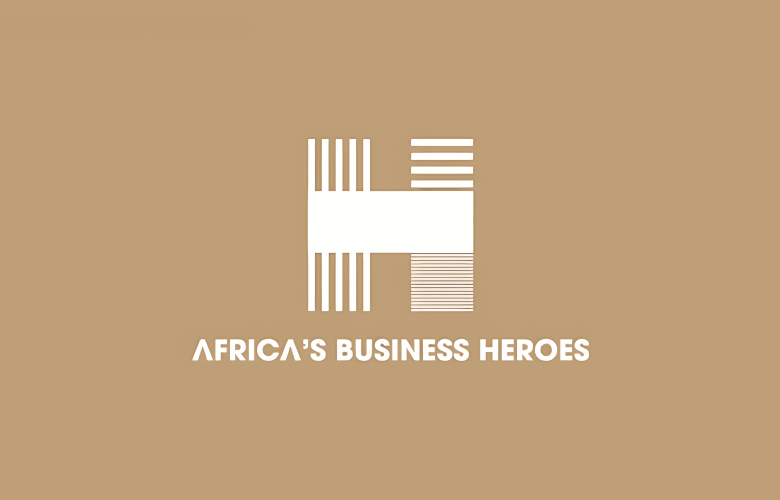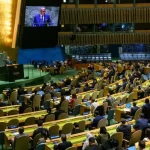The ANPI is the Jack Ma Foundation’s flagship philanthropic entrepreneur program in Africa that aims to identify and support African entrepreneurs who are creating an impact in their communities. Zahra Baitie, Partnerships, and Program Manager at the Jack Ma Foundation discussed the activities of the initiative with the Zare Journal.
Z: The Jack Ma Foundation is the philanthropic organization established by Alibaba Group’s founder, Jack Ma. Please tell us some of the areas the foundation focusses on.
Zahra Baitie : The Jack Ma Foundation was founded in 2014 with an especial focus on education, entrepreneurship, women’s leadership, and the environment. Our main goal is to help build a happier, healthier, more sustainable, and more inclusive society. Since Jack established the Foundation, we have supported global projects and organizations, including the Jack Ma Rural Education Program in China, Ma & Morley Scholarship Program in Australia, and the Queen Rania Foundation in Jordan. In Africa, our flagship philanthropic program is the Africa Netpreneur Prize Initiative (ANPI), which focuses on providing entrepreneurs across Africa with an inclusive platform to be able to showcase and develop their talent and business ideas. The ANPI annually organizes Africa’s Business Heroes prize competition, now in its second year, and which is open for applications until June 22nd. The competition will culminate in a grand finale later this year where the top 10 finalists will take the stage to pitch business legends for a chance to win their share of a US$1.5 million prize pool. We believe entrepreneurs are problem-solvers. They can solve the world’s most pressing challenges and can play a vital role in the advancement of local communities. Africa’s Business Heroes aims to propel such entrepreneurs to create impact. And although the COVID-19 pandemic has brought about an unexpected set of challenges, entrepreneurs can leverage their unique skills and values like resilience and leadership to turn these challenges into opportunities and help local communities overcome this crisis and recover.
Z: Tell us more about the Netpreneur Initiative, which seems to be one of the flagship programs of the foundation? As we know this year’s ANPI’s main event is set to be held in Ethiopia. How does COVID-19 affect this year’s ANPI? What is the plan?
Zahra Baitie : When Jack Ma visited Africa for the first time in 2017, he returned from that trip deeply inspired by the energy and potential he saw amongst the young entrepreneurs he met with. He also realized that these entrepreneurs were tackling many of the same challenges that he also had to face when he first founded Alibaba twenty years ago. From that trip, he committed to do his part to inspire, train, and support entrepreneurs in Africa. As part of this commitment, he established the Jack Ma Foundation’s Africa Netpreneur Prize Initiative (ANPI) in 2018. The ANPI is the Jack Ma Foundation’s key philanthropic program in Africa. It reflects the Foundation’s long-standing commitment to entrepreneurship, and it organizes the annual “Africa’s Business Heroes” (ABH) competition and show, which is open to entrepreneurs from all industry sectors, all African countries, and all ages and genders. Every year, ten finalists are selected to compete in the ABH finale pitch competition. They are chosen based on a set of criteria including – their leadership and vision, ability to translate their innovations and ideas into strong business models, and commitment to creating a positive impact for their communities. We plan to host the Grand Finale in Addis Ababa, later this year where the ten finalists will participate in a televised show that will broadcast both online and across the continent. It will be an exciting opportunity for audiences in Africa and around the world to see and connect with the inspiring stories of entrepreneurship on the continent.
Our 2020 applications opened in April this year, in both French and English. And we are thrilled that so far, we have received an extraordinary level of interest with over 19,000 applications from all 54 countries in Africa. This milestone marks an almost 100% increase from last year when we received 10,000 applications from 50 African countries in total. In the long-term, we aim to highlight 100 extraordinary African entrepreneurs and allocate US$100 million in grant funding, training, and education programs over ten years. We hope to foster the entrepreneurial ecosystem across Africa – empowering entrepreneurs today and tomorrow to pursue their aspirations and take their business to the next level.
Z: Africa is rapidly embracing digitalizing across various sectors. What kind of role do you see the foundation playing in expanding this, especially with Netpreneur initiative?
Zahra Baitie : It is exciting to have witnessed the expansion of home-grown tech and business-model innovations across Africa, and we certainly believe it is a promising time for aspiring entrepreneurs in the continent. We have seen first-hand how transformative SMEs and entrepreneurs can be in driving change and growth. When Alibaba was first founded, there were no payments or logistics infrastructure, but the founding team was able to build a new ecosystem that helped catalyze China’s digital economy. We believe that with the rapid growth in innovation and tech, Africa is poised for a similar digital revolution. The potential for further growth can be fostered by greater cooperation and learnings shared between entrepreneurs and SMEs from different countries and industries, increased access to investment and capital, and enabling policies that can enable innovators and SMEs to thrive. Given the complexities of individual markets in Africa, only a few enterprises operating in Africa can do business across the continent. But our 2019 top 10 finalists from the competition have been able to leverage our program’s networks to begin building partnerships and cooperation with other entrepreneurs from across Africa and from around the world. The investor and donor community has also started to take note of our extraordinary finalists; several have also received multiple investments and grants from other investors, donors, and partners.
We hope that in the future, we will have helped to spark an entrepreneurship movement across Africa, so it is especially promising to see the beginnings of this movement take shape. Looking ahead, we envision the entire ecosystem of players, entrepreneurs, investors, educators, policymakers, civil society working closely together to support entrepreneurship and create new opportunities and jobs.
Z: Jack Ma Foundation’s response to the COVID-19 pandemic especially with regards to donating testing kits, masks and other essential items have been highly appreciated by various stakeholders especially in Africa, what does the Foundation’s future and ongoing commitment look like in response to the pandemic in addition to these generous donations?
Zahra Baitie : We are so grateful to our partners for their leadership in distributing the donations of medical supplies from the Jack Ma Foundation and Alibaba Foundation throughout the continent. We are especially thankful to Prime Minister Abiy Ahmed, the Ethiopian Government, and Ethiopian Airlines for their incredible efforts in helping to quickly establish and activate a strong partnership in the face of this crisis. The distribution of the donation would also not have been possible without the Africa Centre for Disease Control and Prevention, the United Nations World Food Programme, World Health Organization, and the African Union.
Since the outbreak of Covid-19, the Jack Ma Foundation and Alibaba Foundation has also worked to bring together medical experts from around the world to share knowledge, experience and best practices for combatting and treating Covid-19 as a global, united community. To that end, we’ve established the Global MediXchange for Combating Covid-19 (GMCC), a digital platform for global medical workers to share insights, first-hand experiences, best practices, and to easily access other resources and tools such as videos and webinars for treating coronavirus.
We held 11 webinars between April and May for medical workers from nine African countries, including Ethiopia as part of the GMCC. We hosted two of the webinars in collaboration with local partners such as the Africa Centre for Disease Control and Prevention (CDC), the United Nations Office for South-South Cooperation and Higherlife Foundation. In total, 102 African hospitals and over 4,500 medical personnel took part in these sessions. The webinars focused on urgent questions outlined by the participating hospitals. They spanned topics including hospital preparation, resource allocation, infection control, and treatment, as well as nursing and rehabilitation best practices.
While attending a GMCC webinar co-hosted by the Africa Centres for Disease Control and Prevention (Africa CDC) last month, Jack Ma, founder of the Jack Ma Foundation and Alibaba Group, noted the importance of collaboration and sharing in combatting the health crisis, “Over the past three months, I have spent every day following the pandemic. And during our donation efforts, we realized that not only medical supplies are needed, but also a frontline experience to fight the virus. That is why we established the GMCC. The virus does not distinguish between races and people; the virus does not need a passport. Solidarity and collaboration are the only way we can succeed. The solution is not isolation, but instead cooperation.”
Z: In what shape or form is COVID-19 going to transform entrepreneurship in Africa especially from the stand view of digital technology and innovation?
Zahra Baitie : Entrepreneurs are facing incredibly difficult challenges right now, but they will have an important role to play in helping local communities overcome this crisis. They will be instrumental in driving recovery and helping rebuild the economy. Our top 10 finalists from last year have stepped up in the fight against Covid-19 in an incredible way, and are true examples of how entrepreneurs can create solutions so that they can have a chance to survive the crisis and in the long term.
Christelle Kwizera and her team at Water Access Rwanda (WAR) have accelerated efforts to connect households in Rwanda to a water supply. They are driving towards this goal so that people can protect themselves against COVID-19 with frequent and thorough hand-washing and can access water in their homes to comply with social distancing procedures. At LifeBank, Temie Giwa-Tubosun has founded an online registry for vital equipment like ventilators, respirators, and ICU Beds within Nigeria. The company also set up drive-thru COVID-19 testing facilities across Nigeria and also distributed floor stickers to hospitals, pharmacies, and grocery stores to support their social distancing efforts. Chibuzo Opara and his team at DrugStoc are leveraging their robust supply chain system to provide health workers in remote facilities with critical anti-COVID-19 pharmaceutical products.
The inspiring stories of talented business heroes give us confidence that when we look back upon this time of crisis, a new generation of mission-driven and impact-oriented entrepreneurs will have emerged to pioneer new business ideas and solutions. Now, more than ever is the time to turn challenges into opportunities and work hard to realize your business goals.
Z: If circumstances remain unchanged with regards to COVID, are you planning for scenarios to conduct ANPI 2020? Will you be looking to extend the timeline of the competition?
Zahra Baitie : We recognize the impact of the COVID-19 pandemic on entrepreneurs and the critical need to continue to support them. So, in response to the tremendous level of interest, we have received and in consideration of the extraordinary circumstances impacting communities and SMEs around the world and in Africa, we have extended the deadline for applications from June 9th to June 22nd. We also believe the current crisis provides us with an opportunity to innovate as a program. We are planning for a range of scenarios. We will leverage technology to ensure that we can not only continue safely continue the program but do so in a way that is engaging and beneficial for all participants. As an example, we adapted the format for our launch on April 6th this year to host a completely digital version, and we were able to draw in over 4,000 people from across Africa. Moving forward, we will continue to be as flexible and creative as possible to provide all participants with added value and to make Africa’s Business Heroes a worthwhile and impactful experience.
Z: Do you have any concluding remarks?
Zahra Baitie : When we first launched the ‘Africa’s Business Heroes’ competition, we wanted to be as grassroots and inclusive as possible. To that end, we have strived to establish collaboration and synergies with local partners, businesses, and start-up communities. Since then, we have been lucky enough to be working closely with several exceptional local organizations to bring the ‘Africa’s Business Heroes’ competition to all corners of Africa and spotlight talented entrepreneurs from across the continent. In Ethiopia, we were honored that Bethlehem Tilahun Alemu, the founder and CEO of soleRebels, served as a semi-final judge for last year’s prize and continues in this role.
ANPI’s Anchor Partners for 2020 include African Leadership Group, Ashesi, Dalberg, Janngo, and RiseUp. We have also been working with a diverse ecosystem of partners, including business incubators (Ethiopia Entrepreneurship Development Center, StartUp Factory Ethiopia, CTIC, Impact Hub Dakar, Outlierz Ventures, WikiStart Up and i4policy; communications platform such as Sasai, mobile network operators (Safaricom) and media outlets (such as Pulse.Africa and Startimes) to further amplify grassroots outreach to entrepreneurs and to make educational and training resources more widely accessible.
Our extraordinary partners share our mission and commitment to enabling entrepreneurship and together, we hope to support entrepreneur heroes who will create jobs and opportunities for their local communities as well as catalyze an entrepreneurship movement across Africa.





